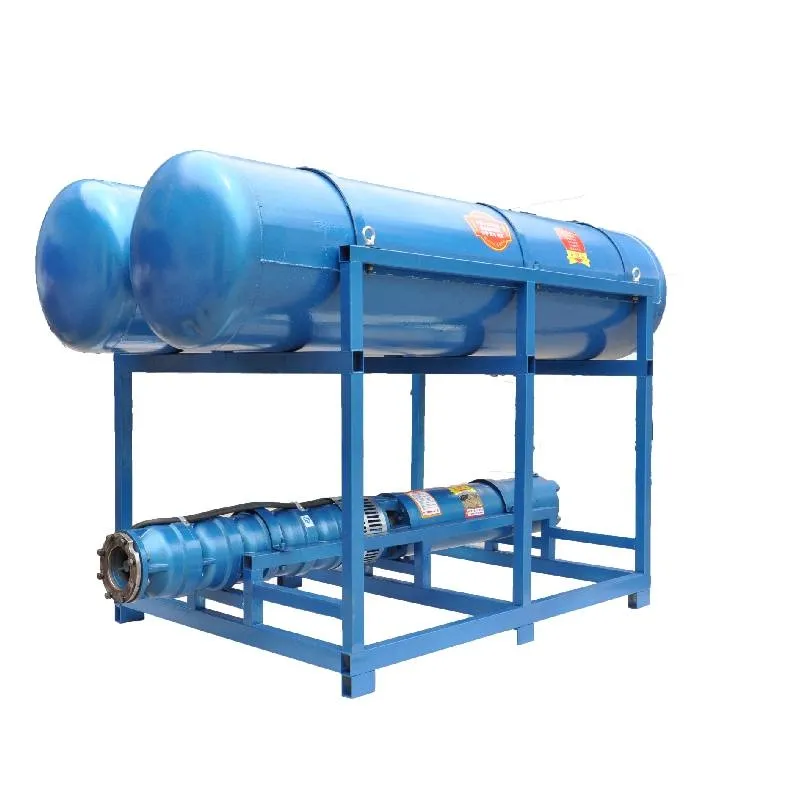11月 . 07, 2024 22:27 Back to list
Optimizing Performance of Electrical Submersible Pumps in Various Applications and Environments
Electrical Submersible Pumps An Overview
Electrical Submersible Pumps (ESPs) have become a fundamental technology in various industries, especially in the extraction of oil and water from deep underground reservoirs. This article seeks to elucidate the working principles, applications, benefits, and challenges of ESPs.
Working Principle
An Electrical Submersible Pump consists of a series of components designed to lift fluids from deep wells. At the heart of its operation lies the motor, typically located at the surface or submerged in a fluid-filled housing, and a pump stage that is positioned below the motor. As the motor powers the impellers, the fluid is drawn into the pump, where it is accelerated and pushed to the surface through a vertical column of tubing. This process is facilitated by the principles of centrifugal force, which allows the pump to generate sufficient energy to move large volumes of fluid against gravitational pull and frictional losses.
Applications
ESPs primarily find their applications in the oil and gas industry, especially in environments where traditional pump systems may fail to deliver the required efficiency. They are prominently used in
1. Oil Extraction ESPs are employed in oil wells to enhance production, particularly in situations where the reservoir pressure is insufficient to push the oil to the surface. This method allows operators to maintain stable flow rates over extended periods.
2. Water Supply Municipal and agricultural water supply systems frequently incorporate ESPs to draw groundwater from boreholes. Their ability to efficiently lift water from deep sources makes them ideal for irrigation and drinking water applications.
3. Dewatering In construction and mining, ESPs are utilized to dewater excavated areas, maintaining safety and operational efficiency.
4. Geothermal Energy ESPs are increasingly embraced in geothermal applications to pump hot water or steam from geothermal wells for heating or electricity generation.
Benefits
The advantages of using ESPs are numerous
electrical submersible pump

- High Efficiency ESPs can operate at high efficiency rates, often exceeding 80%, which translates to reduced operational costs in the long run.
- Continuous Operation These pumps are designed for continuous operation, making them suitable for applications requiring sustained fluid delivery.
- Versatility ESPs can handle a variety of fluids, including viscous oils and particulate-laden water, making them adaptable for various industrial needs.
- Depth Capability They are capable of reaching significant depths, enabling access to resources that would otherwise be unattainable with traditional pumping methods.
Challenges
Despite their advantages, ESPs also encounter several challenges
- Reliability Issues Given their complexity, ESP systems can be prone to failures, often due to mechanical wear in the motor or pump stages, which can lead to costly downtime.
- Wellbore Flow Dynamics The performance of ESPs can be adversely affected by factors such as fluid properties, wellbore conditions, and production rates. Understanding these dynamics is crucial for optimal operation.
- Initial Costs The upfront investment for ESP systems can be substantial, particularly in terms of installation and maintenance. Organizations must consider the total cost of ownership versus the benefits.
- Scaling and Corrosion The environments in which ESPs operate can lead to scaling and corrosion over time, necessitating regular maintenance and potential replacements.
Conclusion
Electrical Submersible Pumps represent a vital technology for fluid extraction across multiple sectors. Their efficiency, versatility, and ability to function under challenging conditions make them indispensable in oil extraction, water supply, and other applications. However, operators must also be mindful of the challenges associated with ESPs, including reliability and maintenance costs. As technology evolves, advancements in materials and design may further enhance the performance and longevity of these essential systems, solidifying their role in the future of resource extraction and management.
-
Water Pumps: Solutions for Every Need
NewsJul.30,2025
-
Submersible Well Pumps: Reliable Water Solutions
NewsJul.30,2025
-
Stainless Steel Water Pumps: Quality and Durability
NewsJul.30,2025
-
Powerful Water Pumps: Your Solution for Efficient Water Management
NewsJul.30,2025
-
Oil vs Water Filled Submersible Pumps: Which is Better?
NewsJul.30,2025
-
Deep Well Pumps: Power and Reliability
NewsJul.30,2025
-
 Water Pumps: Solutions for Every NeedWhen it comes to handling dirty water, the dirty water pump is a must-have.Detail
Water Pumps: Solutions for Every NeedWhen it comes to handling dirty water, the dirty water pump is a must-have.Detail -
 Submersible Well Pumps: Reliable Water SolutionsWhen it comes to ensuring a reliable water supply, submersible well pumps are a top choice.Detail
Submersible Well Pumps: Reliable Water SolutionsWhen it comes to ensuring a reliable water supply, submersible well pumps are a top choice.Detail -
 Stainless Steel Water Pumps: Quality and DurabilityWhen it comes to choosing a water pump, the stainless steel water pump price is a crucial factor.Detail
Stainless Steel Water Pumps: Quality and DurabilityWhen it comes to choosing a water pump, the stainless steel water pump price is a crucial factor.Detail
